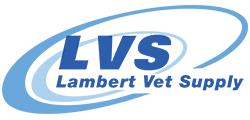
Go Where All Dogs Go! Puppies Need to be House Trained!
Posted May 24, 2017 in Puppy Care

To boldly go where most dogs have gone before!
Yep, that is the goal for house training a puppy. Outside. On a regular basis. On a regular schedule. For baby canine parents, house training their young charge properly ranks as one of the most critical jobs they must accomplish in successfully adding this new furred member to the family. While the task may come with challenges, house training a puppy is infinitely less difficult than rocket science for most pet owners. Successfully house training a puppy combines consistency, perseverance and long-term responsibility for pet parents.
Alike, But Different, Too
Puppies share many of the same characteristics as human babies. Neither can control their bladders or bowel movements at first. While children get diapers, puppies depend on their canine mothers to clean up after them in their den. They go freely here and mom maintains the area by licking the young animals. Later, puppies will mimic mom’s behavior and begin to learn to go potty outside if they remain together. However, many small canines might join a human family before this lesson is fully grasped and the puppy owner will need to do the training or reinforce the earlier instruction.
Out and About and On the Spot
Puppies need to be taught to poop and pee outside. This requires a consistent schedule, planning and the big P word, patience. Success will go hand-in-hand with this attention to detail. Puppies are pooping and peeing machines and what goes in comes out very quickly. Since most baby canines are still learning to control their bladders and bowel movements, puppies must go outside often, like every 30-45 minutes. This also means right after they wake up, after eating and drinking and after vigorous play. Want to house train your puppy? Establish a plop-plop, pee pee spot outside so the young animal makes the association to the outside trips. Puppies need to experience the “light bulb over the head” moment at some point and understand, “Hey! This is where I do my duty!” Smell will make a big connection for the puppy. Carry your young charge to the “spot” if possible so you can establish the exact place to eliminate. Put the puppy on a leash, too, since they may wander or take off from the bathroom area. Many dog owners also work to associate certain words with potty breaks. They use words like “Outside” for the trip and then commands like “Go now” and “Potty” when at the bathroom spot. A young dog should then be able to eliminate on request as he matures into an adult.
Oscar-Winning Performance
Don’t distract the youngster when he is training in the designated area. Stay silent as he scratches and smells and only react once he has accomplished his mission. When your puppy does his duty on the spot, praise him! Make him think he has just won an Oscar for Best Performance in a Yard! No kidding. You can never go wrong with treats either. Dogs are anxious to please their people so a little attention will go a long way.
Related Article: Proper Puppy Care Brings Cuddles, Responsibility >>
A Watched Puppy is a Safe Puppy
House training demands a watchful eye on the baby canine at all times. Most likely, puppy owners will start to pick up subtle and obvious cues about the animal’s need to head to the outside spot like scratching, whining and moving in a circle. It is important to observe these signs and put the rapid transport system in place to get the fur baby outside in time. Distracted puppy parents will miss these hints and find unexpected, bonus urine and feces in the house. Because of this potential problem, many experts suggest using a crate/carrier to help supervise a curious puppy when he is not being monitored. Time in the carrier should be limited to only a couple of hours usually, except for nighttime sleep or extended naps. The proper-sized carrier will help reinforce not to soil an area the puppy spends time in and also give them a quiet, safe place to rest and have some down time. Dogs are clean by nature so in the correct-sized kennel, a puppy will not want to sleep in his mess. Never put food or water in the crate. Make it a sleeping/quiet space. Removing his access to water a couple of hours before bedtime will also help prevent an accident in the carrier. Confinement after an accident should not be used as punishment. This sends a mixed message to the young pup as they try to figure out this whole bathroom business.
Oops! They Did It Again!
Speaking of oops and bonus pee and poop, accidents will happen. Often. Don’t make a big deal out of it, but do make a big deal of cleaning up the mess. Use odor-removing disinfectants so your puppy is not encouraged to return to the scene of the crime and become a repeat offender due to the smell. If this happens, a more thorough cleaning might be necessary and the area may need to be sealed off with a chair or such to make using the spot again difficult. If you catch a puppy in the act, interrupt him immediately. Startle him and give him the “Outside” command as you intervene and take him outside to the correct spot. The old myth about rubbing a dog’s nose in the mess so he remembers does not work. Neither does scolding and yelling. Puppies will not associate any of this with their misplaced biological elimination. Instead they will be confused and fearful, making the housebreaking routine longer.
Busy, Busy, Busy
So you live in an apartment and/or work full-time and can’t be home to supervise 24/7? Many humans fall in this category. House training your puppy will take an additional approach and may last longer, but is still doable. Several options exist. It might be possible to place the youngster in a dog care facility where its staff can monitor and work on bathroom training. Some people hire a dog sitter/walker to come into their home and continue the house training. Perhaps a trusted neighbor or relative lives close enough to devote the time necessary for training.
A Lot of Paperwork
If none of these methods fit your budget or lifestyle, puppy owners can designate a small area like a bathroom, mud room or kitchen as the “indoor spot”. This can even be enclosed with a wire or plastic confinement pen. Areas with vinyl floor covering work best and a tarp or plastic can be placed on the floor first, followed by newspaper or pet pads. Initially, the entire area is covered. As the puppy gets better at controlling his urination and bowel movements, the paper/pad covered area should become smaller and smaller until it can vanish entirely. Of course, when puppy and owner are home together, the outside house training should continue until this mission is accomplished.
One glitch with the paper elimination route means puppies may associate being able to relieve themselves on any papers left on the floor anywhere and any time. For some pet parents creating a “sod box” works better for them. This involves a small, plastic container like a children’s pool in the indoor spot. Inside the container, place sod and dog-litter products from a pet supply store. If you have to clean up an accident outside the area, put the dirty paper towels and rags inside it to help the puppy recognize the urine/feces smell and associate it with the right potty spot.
Find a Way
Be aware many adult dogs that are confined all day inside may have accidents because of the length of time between bathroom trips. Finding a way to allow your canine to relieve itself during the day, whether via dog walker or friend would be a kind gesture for your pet. Imagine not being able to go to the bathroom all day yourself and the need seems more important.
House training a puppy combines consistency, perseverance and long-term responsibility for pet parents. It is doable. Scores of pet owners have survived the process and gone on to lead happy and complete lives. The process can be accomplished in days or months, depending on the animal and the instruction. In the end, puppy parents don’t need a degree in rocket science to master house training, just a lot of love and patience.

